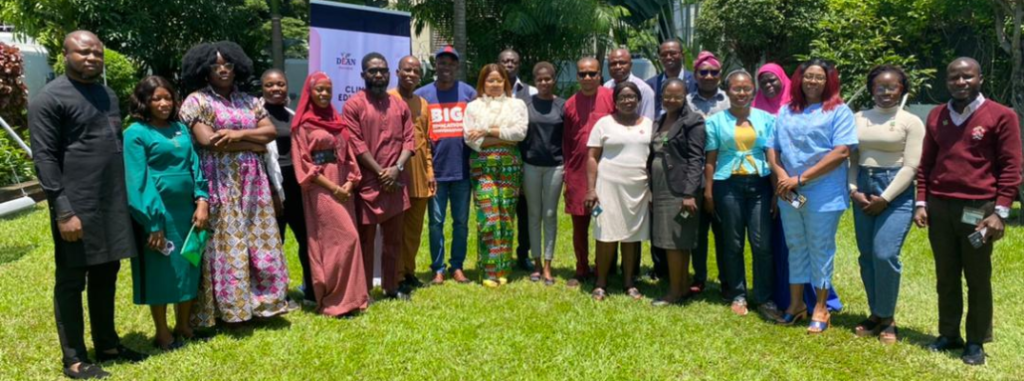Climate change is a pressing concern and there is a growing consensus on the need to include climate education in Nigeria’s schools. This education is vital for children to understand sustainability and their role in tackling climate change.
I was excited to have attended the DEAN Initiative’s Climate Education Conversation on August 29th. This event aimed to discuss the integration of climate education in Nigeria’s school curriculum and brought together teachers, government stakeholders, and civil society organizations.
Our Susty Schools project is themed toward this very goal – involving the younger generation in the journey of environmental sustainability and sparking their interest in a healthier planet. Through this project, we visit schools to teach children about sustainable development goals and climate change using interactive and engaging techniques such as discussions, hands-on activities like tree planting, and hackathons. Our curriculum is tailored to include local examples, case studies, and cultural perspectives, making the learning experience more relatable and meaningful for the kids.
The event began with an introduction by Mr. Semiye Michael, the founder of DEAN Initiative, who explained the event’s purpose. Following this introduction, we received an overview of the organization’s ongoing efforts. These efforts included two important initiatives: the Climate Changemakers Workshop and the Climate Changemakers Club making a impact, with 100 climate educators trained and 2,500 students engaged in 600 workshop sessions across 10 states, including Abuja, Lagos, Kwara, Benue, Cross River, Ogun, Ekiti, Imo, Niger, and Kaduna.
Another presenter then highlighted gaps in climate education, including pedagogical skills, subject knowledge, professional development, interdisciplinary collaboration, cultural relevance, student engagement, fostering action, and access to quality resources. Solutions suggested included funding, retraining, teacher exchange programs, and more.
The highlight of the event for me was the themed discussions. Participants were divided into three groups, and my group discussed the need to justify climate education in schools. We answered questions about why climate education is crucial. We emphasized the importance of raising awareness among teachers and students, fostering a scientific understanding of climate, inspiring lifestyle changes, and equipping students with skills to address climate change.
We also discussed when and how climate education should be integrated into different educational levels. We agreed that it should span from primary to tertiary education, with varying levels of complexity to match students’ cognitive development. Considering the current challenges and bottlenecks in the Nigerian education system, we suggested integrating climate education into existing subjects like geography, agricultural science, basic science, civics education, social studies, and including it in General Studies at the university level.
Other groups emphasized the use of storytelling, tourism, and activity-based learning. The need for innovative teaching methods and contextualized curricula for different regions was also highlighted. Interestingly, it was pointed out that, similar to how Nigeria introduced security education in response to national security concerns, a similar approach could be taken for climate education. However, it was acknowledged that the implementation of security education hasn’t been entirely successful and is not widespread in schools.
In conclusion, this event was informative and enlightening. It provided valuable insights into the challenges and opportunities of climate education in Nigeria. I believe it played a crucial role in advancing this important topic and making meaningful progress.

